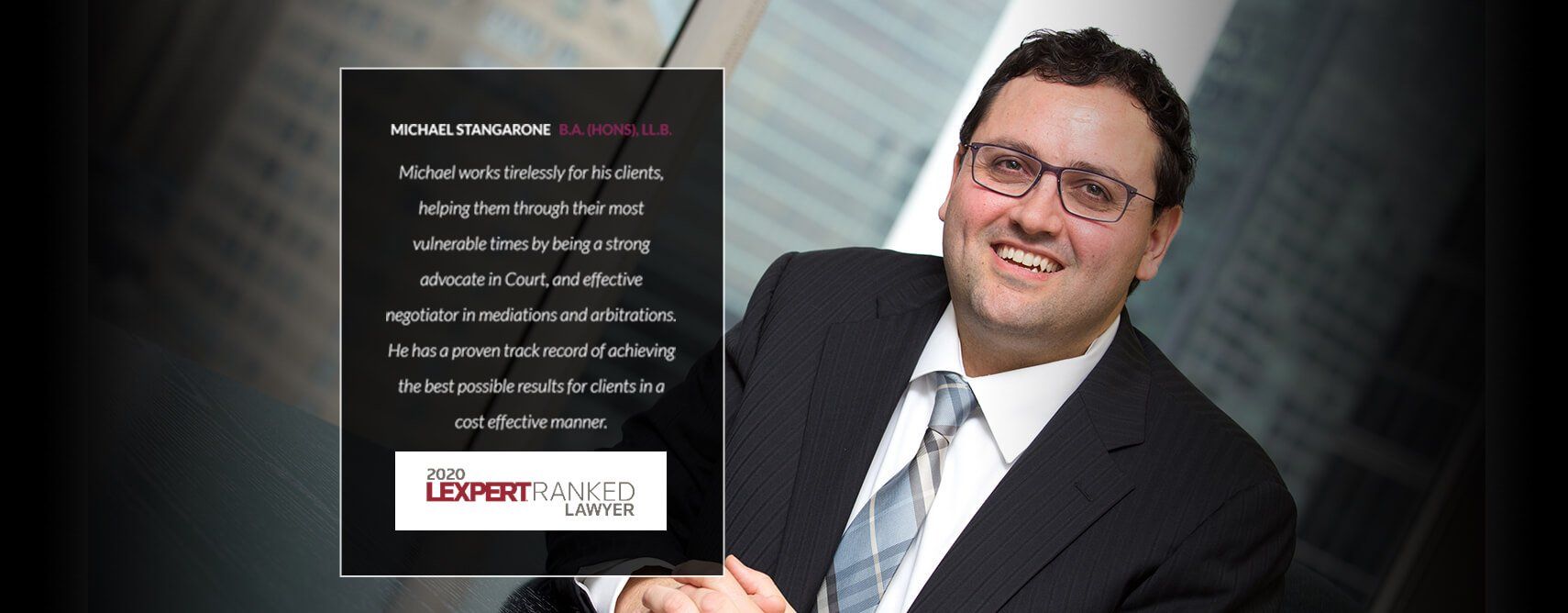Gary Joseph | Sept 2025
This article was originally published by Law360 (www.law360.ca), part of LexisNexis Canada Inc.
My friend, lawyer Steve Benmor, hit a home run with his recent Law360 Canada article: “Do judges remember what it was like to be a lawyer?” I will not even try to expand upon his views; there is no need. He hits all the points
I would have made and more. I agree entirely with him. Rather than a “rinse and repeat,” I want, in this article, to reflect and focus on his analysis of the mounting challenges of being “the solicitor of record.”
Steve is a family lawyer, as am I, so I want to qualify that my reflections, consistent with his, come from only a family law perspective. Perhaps, however, the points he makes are applicable across the entire spectrum of
the justice system, and in particular, for those of us who “toil in the fields” of the litigation world, family, civil and criminal.
Here, I pause, to make one of my standard apologies. Sorry, but I significantly miss the early days of my practice of family law (more nostalgia). While there were challenges, we did not have to deal with what Steve describes in his article, one of which is the “never-ending changes in the rules.” For me, the demands of what I call the “practice direction du jour” are maddening. Those who practise in and around Greater Toronto Area courts are constantly tested to understand the often-subtle differences in local practice directions; it is forever frustrating. The need to explain to irate clients things like page limits, limits to the number of exhibits, and delays in scheduling is stressful and unending.
Steve comments on conflict between clients and between counsel. I have written many articles on the issue of civility. I have openly admitted my failures at times in this regard. I must say that despite the many vocal proponents of a more civil approach to family law, I am not seeing any great change. In fact, given the escalating social changes around and the ever-increasing number of lawyers dabbling in family law, perhaps there is less civility. I recognize that this is often directed by clients upset with the justice system and lawyers frustrated by inexperience and their inability to move their cases through the system. I see more barriers to expedited justice today than in the past. Frustration and delay breeds incivility.
I, too, share Steve’s frustration with what he calls “the revolving door of judges” and the occasional absence of professional background of judges sitting in family law. Where is the long promised Unified Family Court? Promises of same remind me of promises related to the Toronto Crosstown subway/transit line. How do you spell NEVER?
Steve quite accurately describes the lawyer who has been mistreated by a client, not paid, whose advice is rejected and then faced with the potential of being forced to continue to represent the client. I had occasion of once being forced to bring a motion to get off the record in similar circumstances and receiving the most awful responding affidavit from the client to the motion. We had to hire counsel to deal with the motion for me.
Sitting in a packed court watching my counsel argue the motion and then listening to the overly angry, self-representing client say the most horrible things about me in front of my family law colleagues was humiliating. To add salt to the wound, the motions judge granted the order and wrote a powerful dismissal of the client’s position, but the client then filed a complaint to the law society. That complaint, ultimately dismissed, was expensive (we hired professional conduct counsel), time-consuming and stressful — all after the motions judge had written a decision clearly favouring our position on the motion to get off the record! It cost the client nothing!
Like Steve, I greatly respect Justice Alex Pazaratz, but we lawyers are not judges. Our lives are quite different. We lack their prestigious position of authority, the respect that judges are usually afforded, their almost entire insulation from mistreatment by clients and the absence of concerns of not being paid by clients. We have rent to pay and staff to keep happy (and pay). Most of us have billing targets. Meeting the administrative demands of the law society are expensive and time-consuming. While judges deal with defamatory postings, they need not worry about false postings that can destroy a long-earned reputation and even destroy a livelihood. They need not worry about a client demanding that they work for free. The position of a judge is difficult and not without stress,
but the analogy to the life of a busy family lawyer is, with great respect, a stretch. Forcing a lawyer to remain on the record should be the remedy of last resort exercised when every possible alternative has been considered. In this context, before such an order is made, the role of the client should also be scrutinized. Obviously, the administration of justice and the possible prejudice to the opposite side are valid considerations, but do consider the overall impact on a lawyer forced to represent a difficult client on a lengthy trial without hope of being paid. Do consider and give considerable weight to the personal and professional impact on that lawyer of that decision. P.S. I have never liked the practice and believe (I hope I am correct) that I have never had a client
sign a free-standing notice of change.
You can read this article directly on Law360.
Gary S. Joseph is counsel to the firm of MacDonald & Partners LLP. A certified specialist in family law, he has been reported in over 350 family law decisions at all court levels in Ontario and Alberta. He has also appeared as counsel in the Supreme Court of Canada. He is a past family law instructor for the Law Society Bar Admission Course and the winner of the 2021 OBA Award for Excellence in Family Law.
The opinions expressed are those of the authors) and do not necessarily reflect the views of the author's firm, its clients, LexisNexis Canada, Law360 Canada, or any of its or their respective affiliates. This article is for general information purposes and is not intended to be and should not be taken as legal advice.




